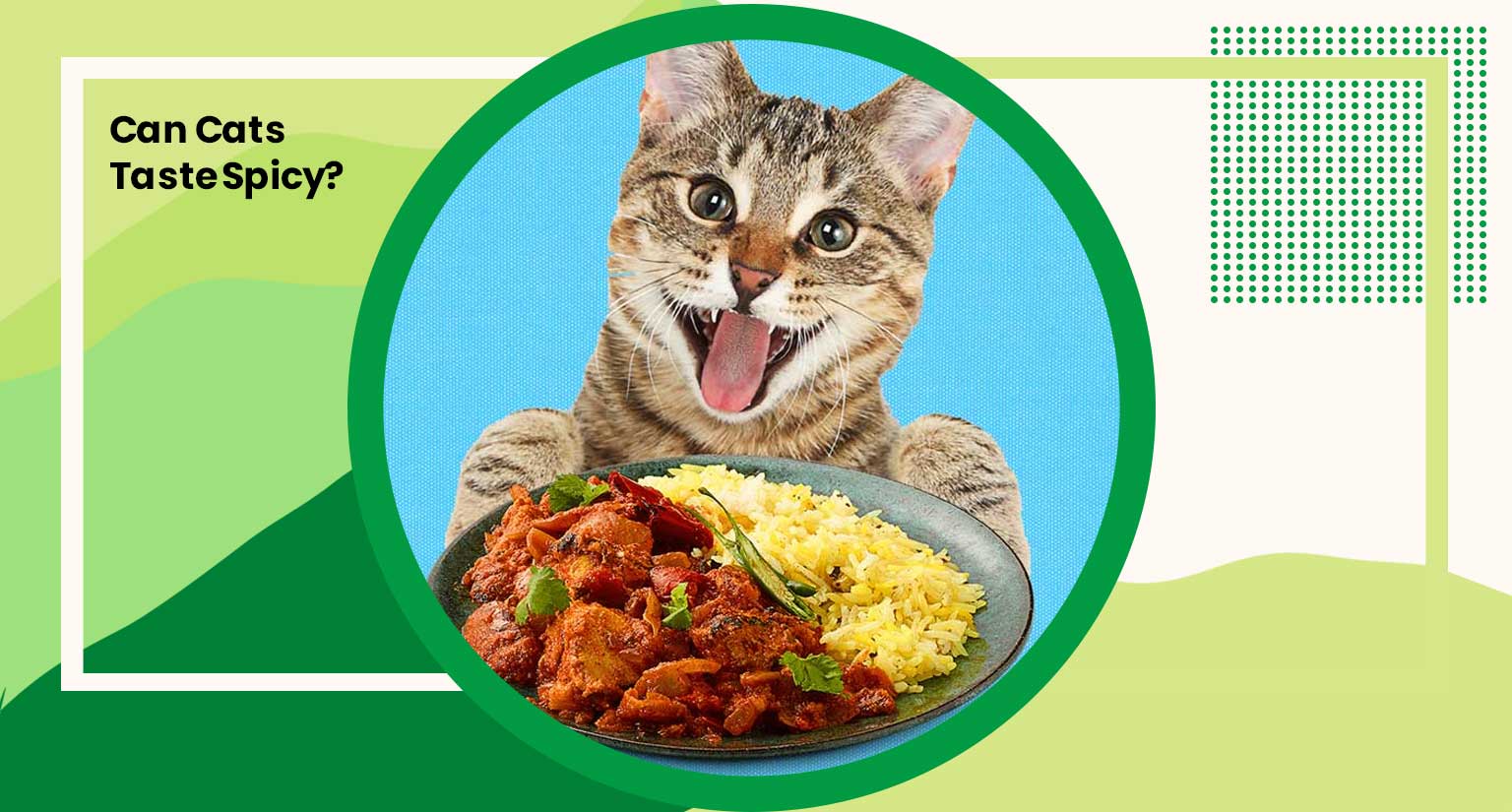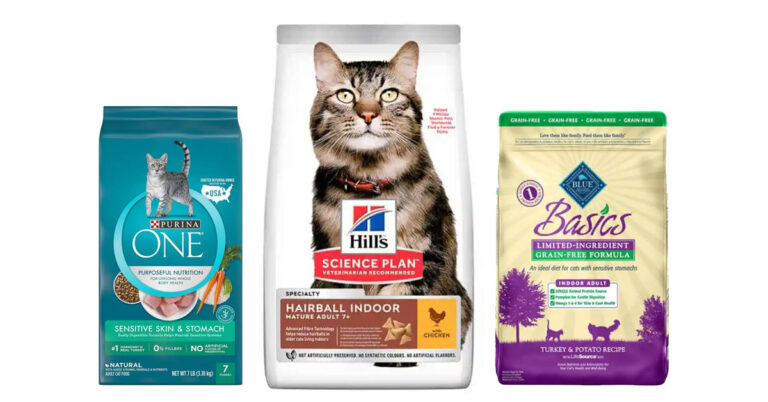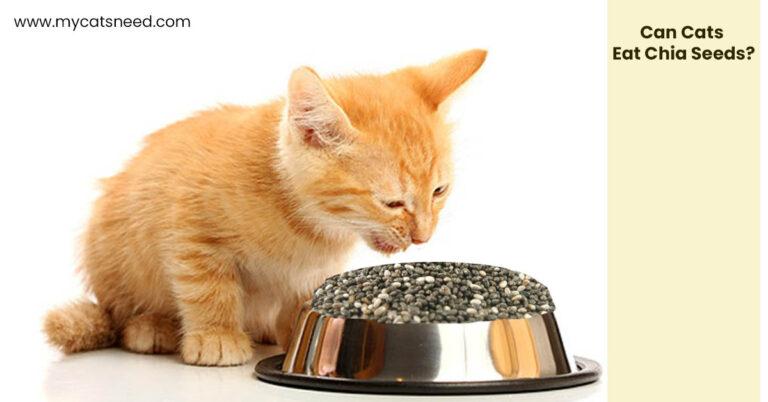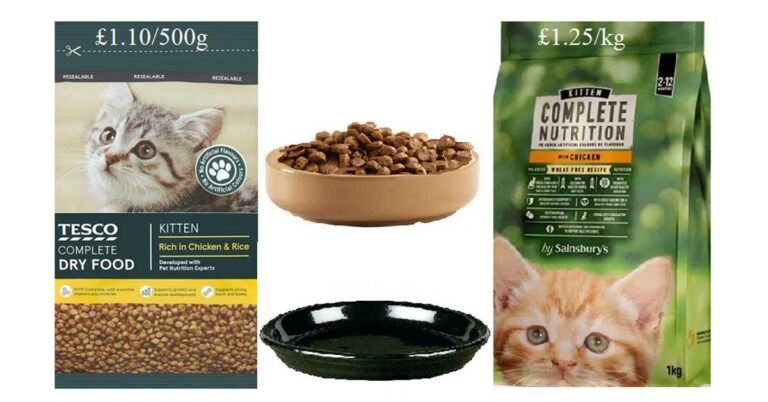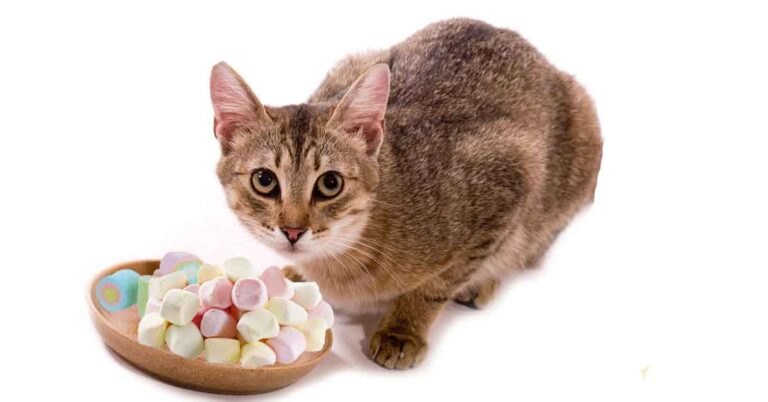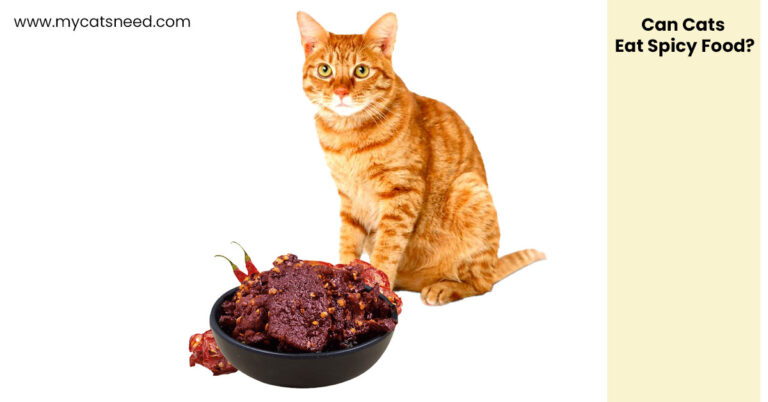Can Cats Taste Spicy?
As we talk to our cat friends, there is frequently a lot of interest in their food choices. One common question that pet owners have is whether Can cats taste spicy?
In this article, we will delve into the intriguing world of a cat’s taste buds and explore whether they have the capability to sense spiciness. Let’s uncover the secrets of your cat’s palate.
Are Spicy Foods Bad for Your Cat?
You might enjoy the kick of spicy flavors in your meals, it’s important to consider how these seasonings can affect your furry feline friend?
Cats have a different set of taste preferences and sensitivities compared to humans.
Here, we will delve into the details to explain why spicy foods may not be the best choice for your cat’s diet.
Cat Taste Buds vs. Human Taste Buds
Cats and humans have unique taste bud structures.
Cats are obligate carnivores, which means their taste buds are primarily attuned to detecting the flavors of meat.
They have a limited number of taste receptors, and unlike humans, they lack the ability to taste sweetness.
This difference in taste perception plays a crucial role in understanding their reaction to spicy foods.
Capsaicin Sensitivity
Spiciness in foods is often attributed to the compound called capsaicin, found in peppers.
This compound is what makes your mouth feel the burning sensation when consuming spicy foods.
Cats, in general, lack the specific receptors that respond to capsaicin. As a result, they do not experience the same spicy sensation that humans do.
Potential Health Risks
Cats may not find spicy foods appealing, it’s important to note that feeding your cat spicy or heavily seasoned foods can have adverse effects.
Spices, such as garlic and onion, are known to be toxic to cats and can lead to health issues like gastrointestinal problems, anemia, and more.
Digestive Upset
The digestive system of cats is highly sensitive, and introducing spicy foods can lead to stomach discomfort, vomiting, and diarrhea.
Spices can irritate the lining of a cat’s digestive tract, which can be uncomfortable and even harmful to their overall well-being.
Cats may not perceive spiciness in the same way humans do, it’s best to avoid feeding them spicy foods.
Their unique taste preferences and digestive system are not designed to handle the pungent flavors that we enjoy.
Why Does My Cat Seem to Love Spicy Food?
It’s not uncommon for cat owners to notice their feline companions showing an interest in spicy foods, or at least in foods that contain ingredients like chili or hot sauce.
Cats lack the ability to taste spiciness in the same way humans do, there are a few reasons why your cat might exhibit an attraction to spicy-flavored foods.
Aromatics and Texture
Spicy foods often have strong, enticing aromas that can pique a cat’s curiosity. Cats rely heavily on their sense of smell, and they may be drawn to the fragrant components of a spicy meal.
Additionally, the texture of certain spicy foods, such as meat or sauce, can be appealing to cats, making them more interested in trying a bite.
Social Imitation
Cats are known to be highly observant creatures. If they see their human companions enjoying a spicy meal, they might be inclined to investigate or sample the food out of curiosity.
It’s not necessarily that they enjoy the spiciness itself but rather the act of sharing a meal with their owner.
Variety in Taste
Cats, like humans, appreciate variety in their diets. Offering a new and different flavor, even if it’s spicy, can be exciting for them.
This novelty can lead to an apparent fondness for certain foods, even if it’s not due to the spiciness itself.
Personal Preferences
Just like humans have individual taste preferences, cats also have unique likes and dislikes when it comes to food.
Some cats may genuinely enjoy the taste of spicy food, while others might simply be attracted to the overall flavors and ingredients in a spicy dish.
It may seem like your cat enjoys spicy food, it’s more likely that their interest is driven by the smell, texture, social context, or a personal preference for certain flavors.
Spicy foods are not suitable for cats and can lead to digestive issues. It’s best to provide your cat with a balanced and appropriate diet to ensure their well-being.
Which Spices Are a Big No for Your Cats?
Your cat’s diet, it’s crucial to be aware of certain spices that can be harmful or even toxic to them.
While cats may not have a strong taste for spiciness, some spices commonly found in human foods can pose serious health risks.
Here are some spices you should absolutely avoid giving to your feline friend:
Onion and Garlic
Onions and garlic, whether in raw, cooked, or powdered form, are highly toxic to cats.
These spices can cause damage to a cat’s red blood cells, leading to anemia.
Avoid giving them any food containing even small amounts of these ingredients.
Chives
Chives belong to the same family as onions and garlic and have similar harmful effects.
Even a small amount of chives can be dangerous to cats and should be kept far away from their diet.
Nutmeg
Nutmeg is another spice that is toxic to cats.
Ingesting nutmeg can lead to central nervous system disorders and hallucinations in cats.
Keep foods containing nutmeg out of their reach.
Cinnamon
Cinnamon, while not as toxic as some other spices, can still cause gastrointestinal discomfort in cats.
It’s best to avoid feeding them foods heavily spiced with cinnamon.
Salt
While salt is not a spice, it’s often used to season foods.
Excessive salt intake can lead to sodium ion poisoning in cats, which can result in symptoms like increased thirst, urination, and even tremors.
Excessive Spicy Seasonings
In general, it’s advisable to avoid feeding your cat foods with excessive spicy seasonings.
While cats may not be sensitive to capsaicin (the compound responsible for spiciness), their digestive systems are not equipped to handle highly spiced or heavily seasoned foods.
Your cat’s diet is free from any spices or seasonings that can harm them.
Stick to a balanced and nutritionally appropriate cat food to guarantee their well-being and keep them away from potentially harmful ingredients.
What Happens If Cats Eat Spicy Food?
Cats may not taste spiciness in the same way humans do, consuming spicy food can lead to various adverse effects on their health and well-being.
Here’s what can happen if your cat ingests spicy food:
Gastrointestinal Distress
Spicy foods can irritate a cat’s sensitive gastrointestinal tract.
This irritation can lead to symptoms such as vomiting, diarrhea, and abdominal discomfort.
Cats may experience stomach upset as their bodies attempt to process the spicy ingredients.
Dehydration
Spicy foods can cause an increase in thirst and water consumption in cats as their bodies try to dilute the irritants.
This can lead to dehydration if they are unable to drink enough water to compensate.
Oral and Throat Discomfort
Spices like chili can cause oral and throat discomfort in cats, leading to excessive salivation and pawing at their mouths.
This can be distressing for your feline companion.
Potential Allergic Reactions
Some cats may exhibit allergic reactions to certain spicy ingredients or seasonings, which can manifest as itching, skin problems, or even more severe allergic responses.
It’s essential to monitor your cat for any signs of an allergic reaction.
Digestive Upset
The digestive system of cats is sensitive, and introducing spicy foods can disrupt the balance of beneficial gut bacteria. This can lead to further digestive upset and potential long-term issues if spicy foods are consumed regularly.
Long-Term Health Risks
Consistently feeding your cat spicy or heavily seasoned foods can have long-term health implications.
It may lead to chronic digestive problems, nutritional imbalances, and even obesity if these foods are calorie-dense.
A one-time taste of spicy food might not lead to severe consequences, it’s best to avoid introducing spicy ingredients into your cat’s diet.
The discomfort and potential health risks associated with spicy foods are not worth the temporary curiosity or interest your cat might have in these flavors.
Option for a diet that meets your cat’s nutritional needs and ensures their well-being.
What Flavor Can a Cat Not Taste?
Cats like humans, have specific taste preferences and limitations when it comes to flavor perception. One of the notable flavors that cats cannot taste is sweetness.
Unlike humans who have taste receptors for sweetness, cats lack these receptors and are essentially indifferent to sugary flavors. Here’s why cats cannot taste sweetness and how it impacts their diet:
Missing Sweet Receptors
Taste receptors on the tongue are responsible for detecting different flavors. In humans, sweet taste receptors are attuned to sugars and other sweet compounds, signaling the brain to perceive a pleasant, sugary taste.
Cats on the other hand, lack these sweet receptors. Their taste buds are primarily focused on detecting savory, meaty, and amino acid flavors, which are more aligned with their carnivorous nature.
Evolutionary Explanation
Cats are obligate carnivores, meaning their natural diet primarily consists of animal-based proteins.
In the wild, they would rarely encounter sweet foods, so there was no evolutionary advantage for them to develop a preference for sweetness.
Their taste preferences are more attuned to detecting the flavors present in their natural prey.
Implications for Cat Diets
The fact that cats cannot taste sweetness has important implications for their diet. It means that they are not naturally attracted to sugary foods and are unlikely to enjoy them.
It also highlights the importance of providing a diet that aligns with their nutritional needs, focusing on protein and avoiding foods high in sugars, which can be detrimental to their health.
Cats cannot taste sweetness due to the absence of sweet receptors on their taste buds. Their natural preference is for savory and meaty flavors, which reflects their evolutionary history as obligate carnivores.

